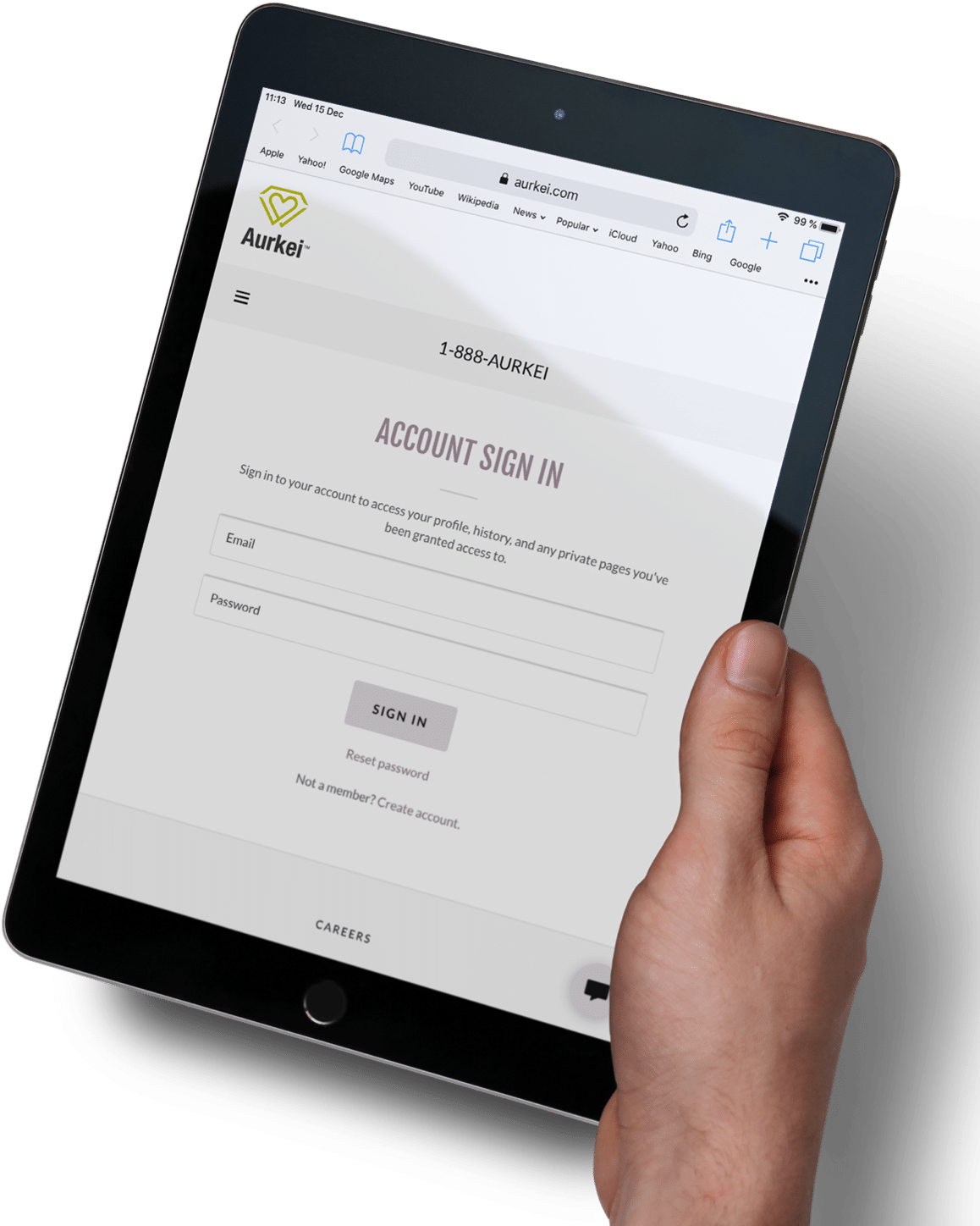Consider the mother of a child (a real caregiver whose name has been withheld per her request) with a very rare health condition, with over 25 years of experience in healthcare information systems, who has been going to great lengths to secure the best care for her child. Despite her demanding work schedule, she has dedicated time, money (as insurance does not cover costs until deductibles are met), and energy to obtaining various diagnostic reports, including genomic sequencing, CT scans, MRIs, blood work, and any other tests the doctors recommended. This process was not only exhausting for her but has also been draining her family resources both monetarily and emotionally, impacting the care of her other healthy child and stressing her husband similarly.
Despite the tremendous effort that went into coordinating and conducting all these tests, the data is now held by the healthcare facilities that performed them, while she receives only a two-sentence summary in her child’s medical chart. This incomplete data repository not only limits her ability to understand her child’s condition accurately but also hinders her from seeking second opinions and exploring alternative therapies or clinical trials. She’s also in the dark about how her child’s patient data is shared and used by care providers, which raises several concerns regarding data security and privacy.
Additionally, as a healthcare professional, she is aware that her child’s rare condition makes the data valuable for clinical trials, not only for this specific illness but potentially for others as well. However, she still has to conduct extensive research to find relevant clinical trials and go through the tedious onboarding process by herself with little to no support.
She also knows that care providers collect patient records and sell them to large aggregator corporations, who in turn auction them to health policy researchers, pharmaceutical companies, and marketing corporations to the highest bidder. For, instance, telehealth and therapy apps have been caught selling patients’ healthcare data to data brokers, who then repackage and sell this information for prices starting at $275, according to The Washington Post. Meanwhile, the healthcare data explosion is projected to surpass 10 zettabytes—or 10 trillion gigabytes—by 2025, as indicated by IDC’s Data Readiness Condition (DATCON) index. The surge in data generation and its tremendous value have drawn major technology companies like Apple, Alphabet (Google), Amazon, Microsoft, and Meta to invest in healthcare data to build healthcare solutions. In fact, they have collectively invested over $3.1 billion in the healthcare industry as per the Economist. Which is a considerable investment in the industry that is estimated to be worth over $8 trillion, according to CB Insights.
Even though healthcare data is highly lucrative, patients never receive their fair share of the profits generated from leveraging their data. If only they were to receive a fraction of these profits, they could potentially alleviate some out-of-pocket expenses, which could potentially contribute toward alleviating medical debt. According to a 2024 report from the Kaiser Family Foundation (KFF), people in the U.S. collectively owe at least $220 billion in medical debt. Out of this total, around 14 million people, or 6% of U.S. adults, owe more than $1,000 in medical debt. Additionally, about 3 million people, or 1% of U.S. adults, owe more than $10,000 in medical debt.
In such a complex scenario Aurkei, Inc., has arisen as a small glimmer of hope. Established in 2021, Aurkei tackles such complex challenges associated with an individual’s health data, turning a frustrating experience into a solution-focused journey. The company is poised to help her and many such patients with a soon-to-be-launched patient identity and data monetization solution with blockchain underpinnings. “We are offering pre-launch access to several users. This access is geared toward being instrumental in helping individuals own, access, secure, and monetize their data,” says Sapna Ravula, MD, MPH, MMCi, Founder and CEO of Aurkei.
Aurkei Platform in Action

Upon signing up on the Aurkei mobile app, the platform generates a secure and proprietary Non-Fungible Identity Token (NFIT) for each patient, based on their genomic sequencing data. “NFIT is the first of its kind for healthcare data ownership and staking, creating an unhackable digital identity for patients. We refer to this as Aurkore (our core, a unique genomic avatar or the Super DNA of patients),” remarks Sapna. NFIT’s capability to link data to specific identities offers several benefits to the users.
Firstly, it empowers individuals to claim ownership of their data, with the choice to stake it. Secondly, it facilitates participation in decentralized health data marketplaces, allowing patients to monetize such data by sharing it with researchers and pharmaceutical companies. The income thus generated can then be used to cover portions of out-of-pocket medical expenses, helping individuals avoid falling into medical debt (at sufficient volumes of transactions for specific conditions). Thirdly, it opens a decentralized clinical trials marketplace that enables better recruitment, retention, and results. Finally, owning one’s healthcare data grants individuals control over its security, thereby addressing privacy and security concerns. “At Aurkei, we believe that data should belong to the data generators as data owners, not just the users of a platform built on the knowledge created by these data owners. We are reversing the power paradigm by giving control back to the individual,” emphasizes Sapna.
Unlocking More Benefits
Aurkeians, the users of the Aurkei platform, can also enjoy discounts on their healthcare insurance premiums and lower treatment costs as the ecosystem grows with strategic partnerships by collaborating with various entities such as hospitals, insurance companies, hospices, or any organizations involved in providing or facilitating care. This kind of marketplace also provides the ability for independent providers to thrive and garner a robust client base without intervening middle layers.

Prospective data sharing with key stakeholders on both sides of the equation demonstrates an individual’s commitment toward maintaining better health practices, such as exercising regularly, adhering to medications, participating in clinical trials, and prioritizing overall well-being. As adherence to medications and a healthy lifestyle can enhance patient outcomes and significantly reduce the cost of care, healthcare payers can extend some of these benefits to consumers by offering reduced premium costs.
Conversely, healthcare providers, armed with access to real time and growing patient-generated consumer healthcare data, gain deeper insights into patient demographics. This understanding allows them to more accurately track patient needs and offer services and products that are more affordable for patients.
Through the integration of data monetization, healthcare provider/payer partnerships, and active healthcare management—the three core components of the platform—Aurkei ensures a reduction in out-of-pocket expenses. Aurkei thus emerges as the solution that streamlines and enhances the healthcare experience for individuals, offering a holistic approach to healthcare management.
“A shift of this magnitude in the ecosystem is a process that will take years. However, our approach is to address issues from a solutions perspective rather than dwelling on problems. Instead of merely identifying a problem, we ask, ‘What if we approached it this way? Wouldn’t that be better?’ ” remarks Sapna. “We are dedicated to serving the global healthcare community, achieving health equity, and improving the lives of as many people as possible,” she adds.
The Inspiration Behind Aurkei’s Inception

Sapna is a Double Board-Certified Physician in Family Medicine and Lifestyle Medicine with over a decade of experience in the healthcare industry. Additionally, she has advanced Business Analytics training from Harvard and Clinical Informatics training from Duke University. The idea for Aurkei stems from her observation of patients facing high out-of-pocket bills despite having healthcare insurance. Many patients either borrow money to meet their high deductibles or compromise on healthcare to reduce medical bills, leading to more significant health issues that cannot be ignored. Both scenarios result in substantial healthcare bills and eventually insurmountable medical debt. Sapna believes that the solution must come from within the system, which led her to establish Aurkei, empowering patients to monetize their most crucial asset—their healthcare data. “Our platform empowers individuals to claim ownership over their data and ensures that they receive a share of its transaction value,” emphasizes Sapna.
Driving Force Behind Aurkei
Sapna believes that being a healthcare provider, whether a doctor, nurse, therapist, pharmacist, or any other role, is not just a profession; it is a calling. It requires faith, service, empathy, and a certain amount of selflessness to not only provide knowledge, experience, and expertise but to give oneself to the care of another. “When one never forgets that the core of this care is the patient, it becomes evident how broken things are, how helpless we all feel, and how we are reaching a tipping point where change must happen. Aurkei is the result of this realization,” shares Sapna.
“It’s not just about sickness or health; it’s about your healthcare journey and, ultimately, your life. That’s why our website says our lives, our data, our key,” remarks Sapna. The name Aurkei stands for ‘Our Key,’ symbolizing a key to both consumers’ health and wealth.
Aurkei operates in a holocratic manner, emphasizing the collective aspect of the brand in the “Aur/Our” portion of the name. “This promotes a sense of belonging, as we aim to empower each individual such as this mother and her child that we serve, emphasizing that we are all in this together. At Aurkei (Our Key), we believe in AurData and AurLives,” she concludes.
Disclaimer: Aurkei is a Seed Stage early venture entity. All claims regarding products and services are in the stage of development and must be verified with Aurkei, Inc. prior to any transactions on or off the platform. Aurkei makes no claims on the state of the crypto industry, or its potential and should not be used in any manner other than the sole intention of this article to inform and raise awareness.
Click here for Digital Magazine
Click here for the HTML page

Books have always been my passion, and that love naturally evolved into a passion for writing. It has shaped many of my decisions—from pursuing Journalism (after all, journalism is literature in a hurry) to building my career here at CIO TechWorld.
At this company, I discovered the art within technology. I’ve been crafting compelling stories about technology companies and the leaders driving them forward, while also connecting with industry experts to capture their perspectives on technology as an enabler and a problem solver.









